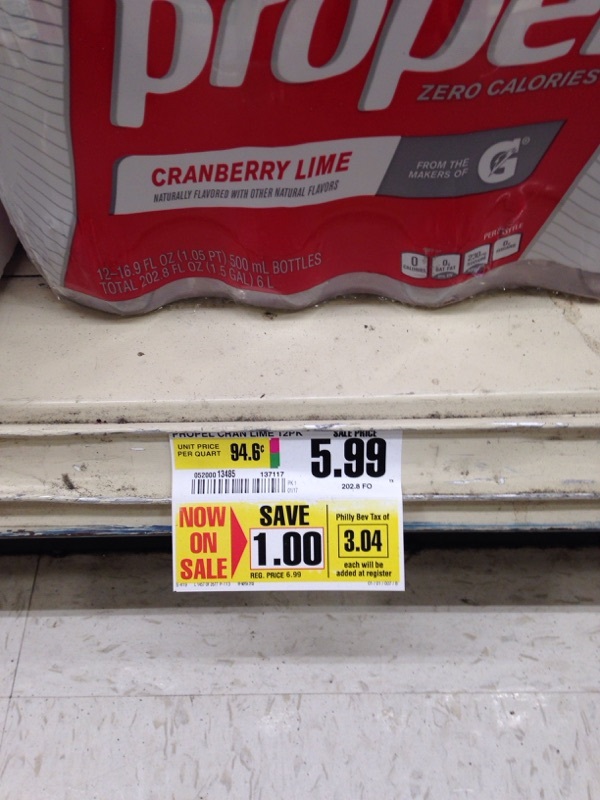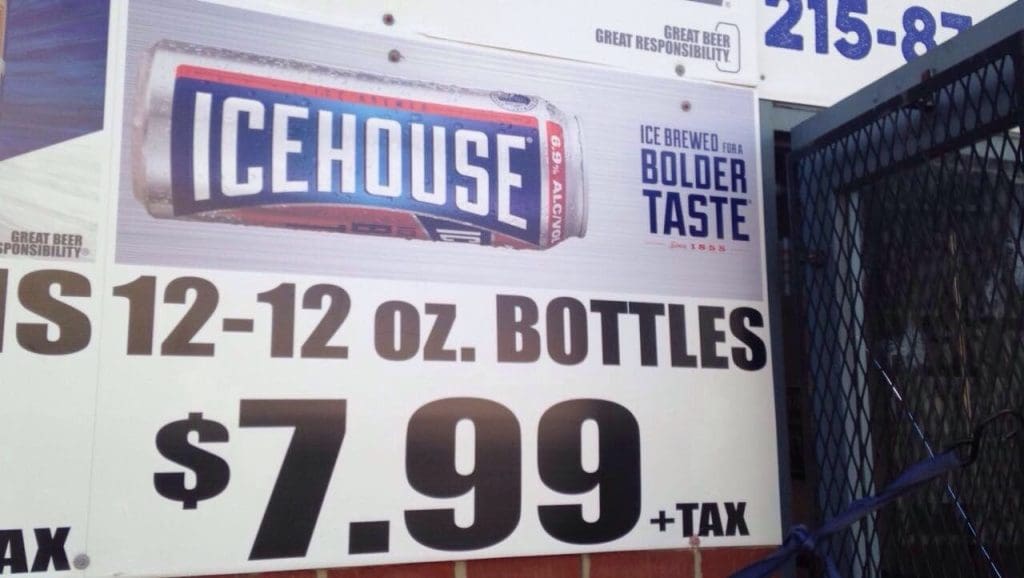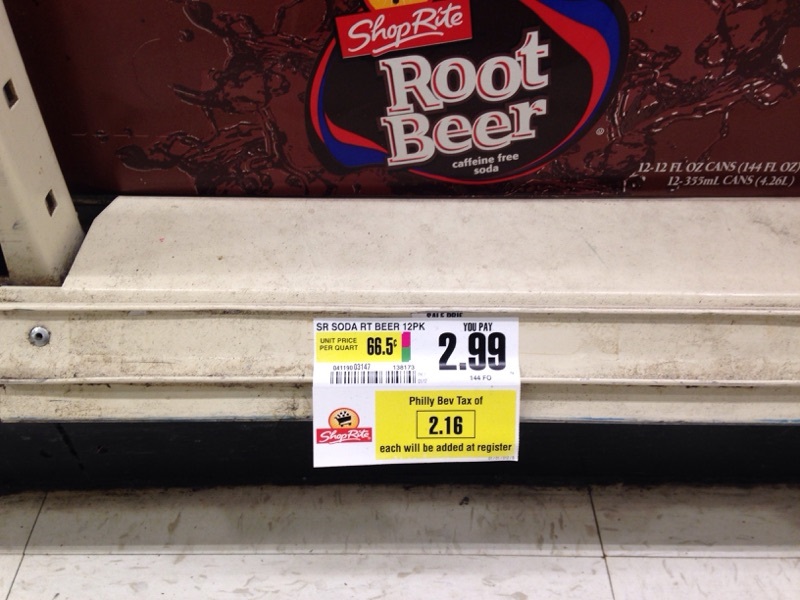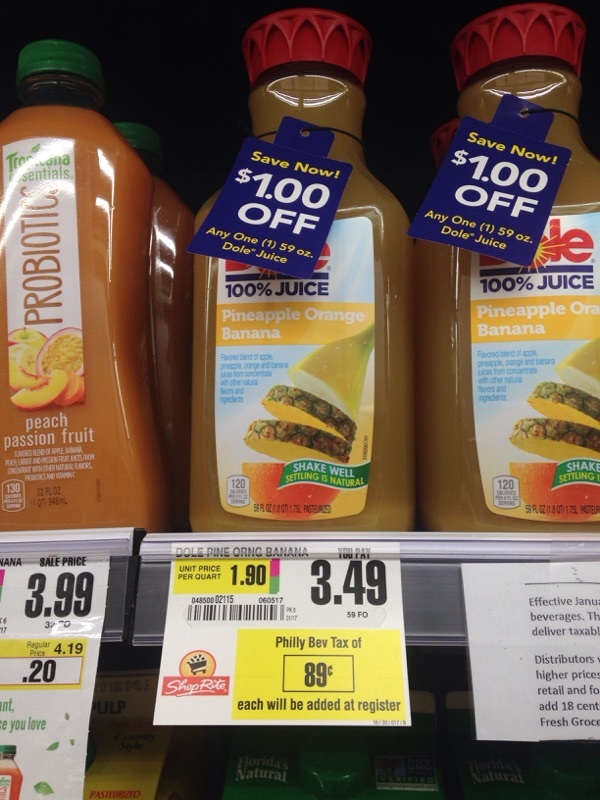On January 1st, the controversial Philadelphia soda taxA soda tax is an excise tax on sugary drinks. Most soda taxes apply a flat rate per ounce of a sugar-sweetened beverage. took effect. It is levied at a rate of 1.5 cents per ounce, which is 24 times the tax levied on beer in the state of Pennsylvania. This stark new taxA tax is a mandatory payment or charge collected by local, state, and national governments from individuals or businesses to cover the costs of general government services, goods, and activities. has prompted a few interesting reactions on Twitter as customers are starting to see just how large the effects on prices of sweetened beverages in the city are. One person on Craigslist (the post has now been flagged for removal) posted a joke page offering to smuggle in untaxed soda, noting that they “deal in weight only” and “cash or Bitcoin accepted.”
My colleague Bill Rickards—former Tax Foundation intern, Philadelphia native, and all-around great guy—just sent me some pictures of what this looks like on the ground in the city. Some observations (all photo credits to Bill):
A 12-pack of sports drinks is now more expensive than beer. Here’s a 12-pack of Propel energy water versus a 12-pack of Icehouse beer. Before sales taxes, 12 Propels is $5.99 plus $3.04 in soda taxes for a total of $9.03 (and that’s when it’s on sale for $1 less than the $6.99 standard). The 12 Icehouses are $7.99, beer tax included.
The tax on sweetened beverages is approaching the base price of the beverage in some instances. Here’s a picture of store-brand root beer, where the price of a 12-pack is $2.99, plus a beverage tax of $2.16. That’s a 73 percent excise tax. Taxes on 2-liter sodas are even higher percentages.
The “soda” tax is capturing a lot more drinks than just soda. Because of the overly broad statute language, the tax captures zero-calorie diet beverages, juice, and even milk substitutes for lactose-intolerant people. Here’s the tax on Pineapple Orange Banana juice:
Here are at least a few consumers pledging to do their shopping outside the city limits as a result of the tax.
Be sure to catch up on our recent research on soda taxes, which shows that soda taxes increase tax complexity, they have little impact on obesity outcomes, and they end up causing many consumers to switch to beer.
Share this article


